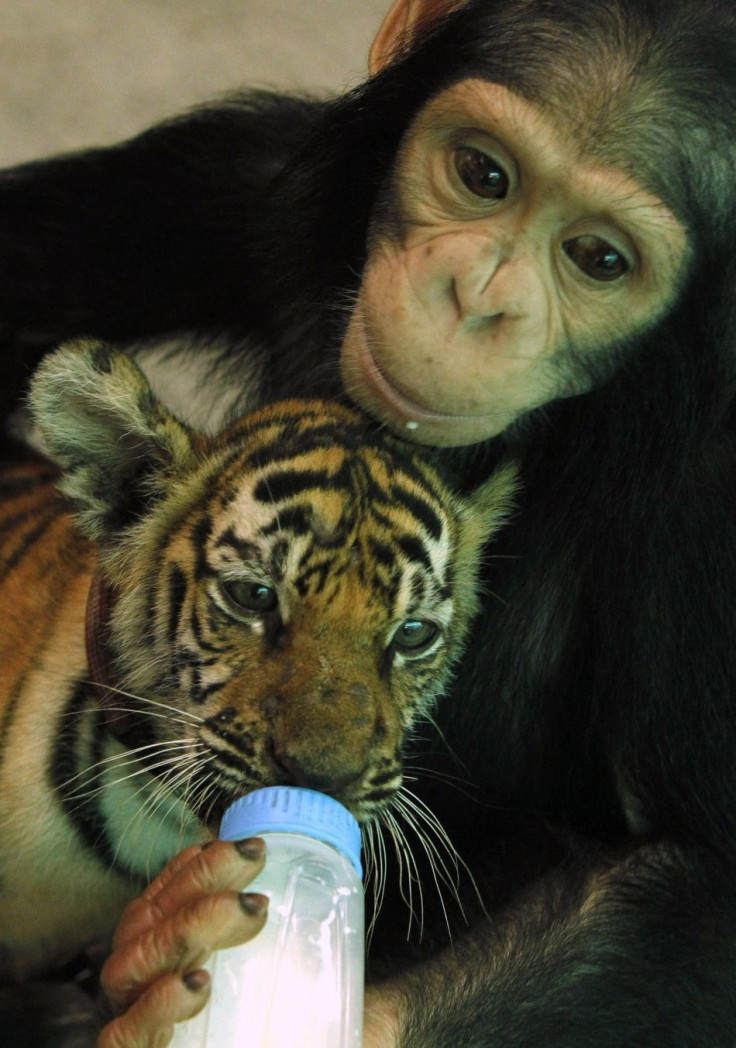Chimps, Like Humans, Exhibit Altruism: Report

A new study found that chimpanzees show concern for the welfare of fellow chimps, upending an assumption that chimps are inherently selfish and suggesting that human social behavior has its roots in our evolutionary forebears.
Displays of altruism, or helping others without any tangible immediate reward, form a central foundation of human society. While chimps exhibit human characteristics like using tools and mourning the dead, they had not yet showed altruism in laboratory experiments, but researchers reported chimps in the wild performing acts of selflessness, like sharing food and helping one another in fights.
"For the past decade we have lived through the curious situation - frustrating for many chimpanzee fieldworkers and observers - that chimps are well known for spontaneous acts of altruism, yet have not shown the same tendencies in well-controlled experiments," said researcher Frans de Waal, a primatologist at Emory University in Atlanta, Ga.
So researchers at Emory University devised a simple experiment, operating on the assumption that former experiments had confused the chimps and failed to yield reliable results.
"Most earlier studies had presented the apes with a complex apparatus that helped them deliver food to themselves or others, often so complicated that the experiments tested tool skills rather than social tendencies," de Waal told LiveScience. "Ours is the first study that uses no such apparatus at all."
In the new study, chimps were placed in adjacent cages so they could see each other, then taught to exchange one of two differently colored tokens for food. If a chimp gave the scientists a token of one color, she got a package of banana slices while her partner got none. If she gave the other color, both of them got something to eat. The chimps overwhelmingly chose the situation in which both benefited.
"For me, the most important finding is that like us, chimpanzees take into account the needs and wishes of others," researcher Victoria Horner, a comparative psychologist at Emory University, told LiveScience.
Researchers also believe the results suggest altruism is not a uniquely human quality, but one that should be evinced by all mammals, reflecting a common evolutionary background.
"Since empathy is an old mammalian trait, there is no reason why the sort of altruism we describe should be unique for the primates," Frans de Waal told Discovery News. "I expect it will be found in dogs [and] rats," he added. "We, and others, found it previously in monkeys: capuchin monkeys, marmosets, tamarins."
© Copyright IBTimes 2025. All rights reserved.





















